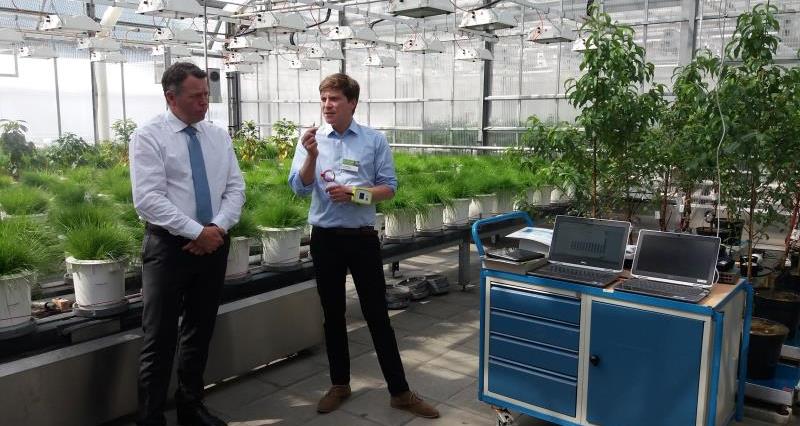A lot of manufacturers have considerable amounts of field and lab data that is not being used as effectively as it could be. But when they combine this with digital skills, they can build platforms to help use this data to address the problem farmers have producing more while impacting less.
Farmers in the UK, with Germany, are leading in the use of manufacturer Yara’s tractor mounted N-Sensor to monitor nitrogen and the N-Tester is used widely in France to increase yields with more, or less, applied Nitrogen. This is partly as it is recognised by regulators as a means to justify deviating from standard recommendations.
There is a lot of technology coming through to farms from a mix of existing and new research including a tester and sensors from Yara, as well as a smartphone app that can create nitrogen recommendations for oilseed rape and cereals. There’s also work underway to develop an in-field test for volatilisation from urea use. All exciting things coming down the pipeline.
The EU Agriculture Commission spoke about results-based policymaking and opportunities to develop robust measures for improvements to biodiversity and resource protection to alleviate some public concern over support payments to farmers.
They have also created opportunities for mainstreaming precision farming through 3,200 EIP Operating Groups of farmers connecting with scientists, calls from Horizon 2020 and the EU Digital directorate.
The NFU pointed out that policy coherence was also a barrier for farmers adopting new technology, particularly after U-turns from the EU commission on biotechnology, biofuels and plant protection products.
For example, farmers who had invested in no-till machines and run the risk of changing their farming systems were very worried to hear the Commission was only supporting a 10-year registration for glyphosate.
Others asked if the use of appropriate precision farming techniques could remove the need for greening, moving to a ‘green by default’ position. The view from most present was that all parts of the supply chain and policymakers had a shared responsibility to help overcome barriers for farming to allow the industry to adopt technologies that helped to improve profit with less impact on the environment.
Farmers need coherent and consistent policy to adopt new technology, NFU says
